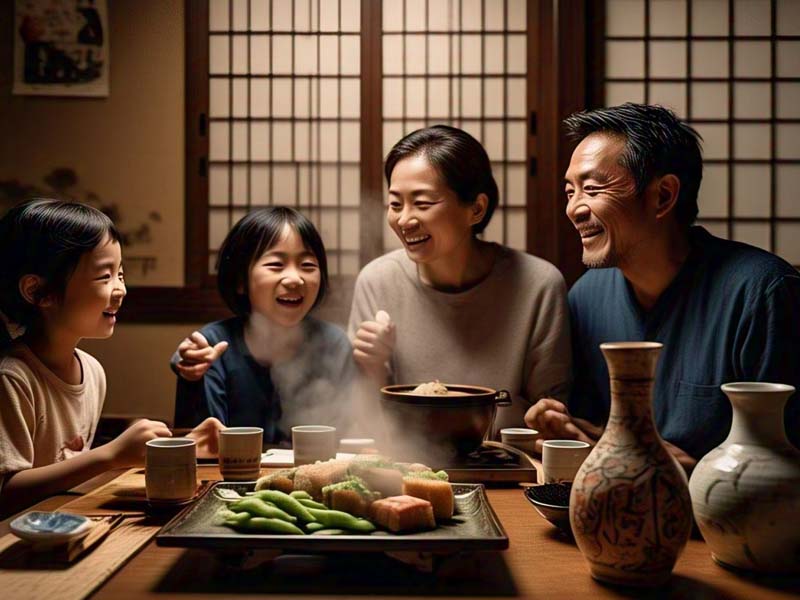
Arcadiadaily – In a world where overeating and unhealthy food choices are common, the Japanese practice of Hara Hachi Bu offers a refreshing and mindful approach to nutrition. This term, deeply rooted in Japanese culture, translates to “eat until you’re 80% full,” and it has been a cornerstone of the traditional Japanese diet for centuries. The concept is simple yet profound: instead of eating until you’re completely full, you stop when you’re satisfied but not overly stuffed. While this might sound unusual at first, Hara Hachi Bu is considered a key factor in the health and longevity of the Japanese population.
At its core, Hara Hachi Bu encourages individuals to leave 20% of their stomachs empty. This practice isn’t just about portion control; it also aims to promote better digestion and overall well-being. The remaining empty space in the stomach allows for more efficient mixing of food with stomach acids, which aids in the digestive process. This, in turn, helps with the proper absorption of nutrients from the food consumed.
This practice is often paired with mindfulness. Instead of rushing through meals, the Japanese take the time to eat slowly and savor their food, which is thought to lead to better satisfaction and digestion. By eating only until you feel 80% full. The body is better able to process food without feeling overwhelmed by excess, which can lead to bloating and discomfort.
“Maintaining a Diesel Engine, Key Tips for Longevity”
Numerous studies suggest that Hara Hachi Bu could play a role in promoting longevity. Which is one of the reasons why the Japanese are known for their long lifespans. By practicing portion control and eating mindfully. People can reduce the risk of chronic diseases like obesity, heart disease, and type 2 diabetes. The key to this approach lies in preventing overeating, which is linked to various health complications.
Moreover, eating in moderation and leaving a small amount of space in the stomach can help maintain a healthy weight. As it encourages individuals to listen to their bodies and eat in a way that aligns with true hunger rather than emotional cravings.
The concept of Hara Hachi Bu is part of a larger cultural emphasis on mindful eating in Japan. Meals are often prepared with great care, focusing on balance and variety. This philosophy is reflected not only in how much food is consumed but also in the types of foods that are eaten. The traditional Japanese diet is rich in vegetables, fish, rice, and fermented foods, all of which contribute to good health.
Incorporating Hara Hachi Bu into daily life isn’t just about what you eat but how you eat. The practice encourages individuals to slow down, enjoy their meals, and pay attention to the body’s signals of satiety. Creating a deeper connection between mind and body.
While Hara Hachi Bu might sound like an unfamiliar practice to many. Its principles can easily be adapted to modern lifestyles. By embracing the idea of eating until you’re 80% full. Individuals can improve their digestion, maintain a healthy weight, and reduce the risk of chronic diseases. With its focus on mindful eating and portion control. Hara Hachi Bu is a powerful yet simple concept that promotes a balanced and healthy lifestyle. Making it a timeless secret to good health shared by the Japanese for generations.
“Crafting Strong and Captivating Characters in Writing”